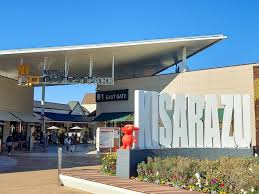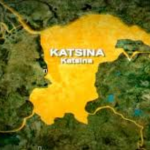The government of Japan on Thursday designated Kisarazu City in Chiba Prefecture as the official hometown for Nigerians, unveiled at the ninth Tokyo International Conference on African Development, with a special visa scheme aimed at attracting skilled workers, students, and professionals from Nigeria.
For those relocating or curious about this city, let’s travel in few minutes to see what makes Kisarazu stand out:
It is located roughly 70 km from Tokyo, Kisarazu is connected via the Tokyo Bay Aqua-Line, a 23.7 km bridge-and-tunnel route—making travel to the capital remarkably convenient.
Nigeria’s athletes were trained in Kisarazu during the Tokyo 2020 Olympics, laying the groundwork for today’s hometown partnership.
- Population and Development
As of 2020, it is home to approximately 136,000 residents, Kisarazu faces the common challenge of an aging population.
The Nigerian exchange programme is poised to significantly bolster the local workforce and community vitality.
- Safety and Security
Japan’s reputation as one of the world’s safest countries extends to Kisarazu.
Low levels of violent crime and a strong presence of community policing make for a notably calm, secure environment, especially appealing to newcomers.
According to risky cities, when it comes to specific crime records, Kisarazu has relatively low instances of violent crimes.
However, like any other city, there may be occasional reports of petty crimes such as pickpocketing or theft.
- Fashion and Clothing
Everyday attire tends to be modern and casual, think jeans, shirts, jackets.
Traditional wear like kimono and yukata are reserved for festivals and cultural celebrations. Nigerians relocating may blend Western-style fashion with African prints during cultural events.
- Local Food
Kisarazu is renowned for its clams harvested at Egawa Beach.
Other local delights include seafood dishes, ramen, udon, and festival snacks like takoyaki and taiyaki.
- Businesses and Economy
Nigerians’ official hometown is situated in the Keiyō Industrial Zone, Kisarazu hosts steel, chemical, and electronics industries.
The Mitsui Outlet Park serves as a major retail hub, while Agriculture and fishing remain cornerstones of the local economy.
- Festivals and Culture
Events such as the Yassai Mossai dance parade and the Kisarazu Minato Port Festival featuring fireworks and street performances contribute to the city’s cultural vibrancy.
The TV drama Kisarazu Cat’s Eye also shines a spotlight on the city.
- Landmarks and Attractions
The Nakanoshima Bridge, the tallest pedestrian bridge in Japan offers sweeping views of Tokyo Bay and, on clear days, Mount Fuji.
- Marriage Policy
Marriages must be registered at city hall to be legally recognised. The minimum legal age is 18 for both genders, and polygamy is not permitted under Japanese law.
Nigerian citizens marrying in Japan must present proof of single status at registration.
- Currency in Use
Like the rest of Japan, Kisarazu uses the yen (¥), with notes in ¥1,000, ¥5,000, and ¥10,000 denominations and coins ranging from ¥1 to ¥500.
- Education Opportunities
Institutions include Seiwa University, Kizarazu National College of Technology, and Gyosei International School, a bilingual (Japanese–English) institution offering education from primary through high school.
- Governance
The city operates under Japan’s municipal system, with a directly elected mayor and a city assembly.
Local governance focuses on urban planning, welfare services, and disaster preparedness, working in tandem with Chiba Prefecture and the central government.
Yoshikuni Watanabe leads Kisarazu as its mayor.
He notably participated in the formal designation event for the Nigerian hometown status.
- Religious Life
Shinto are Buddhism top religions in the city. While Christianity and Islam are minority religions in Japan, as small churches and international congregations exist in Kisarazu, and larger places of worship, including Catholic and Protestant churches, as well as mosques are accessible in nearby Chiba and Tokyo.
Nigerians relocating will have opportunities to connect with spiritual communities in the region.
- New Visa Opportunities for Nigerians
The “hometown” status introduces a new visa path that simplifies living, working, and studying in Japan, enhancing cultural exchange and Nigeria–Japan relations.
- Japanese is the dominant Language
The overwhelmingly dominant language in Kisarazu, and across Japan is, predictably, Japanese.
This includes various regional dialects, but residents primarily use Standard Japanese often based on the Tokyo dialect.
Eight Hours Time Difference With Nigeria
Kisarazu, like the rest of Japan, operates on Japan Standard Time (UTC+9), while Nigeria runs on West Africa Time (UTC+1).
With no daylight saving in either country, Kisarazu is always eight hours ahead of Nigeria.
For example, when it is 12 noon in most parts of Nigeria, it is already 8 pm in Kisarazu.








